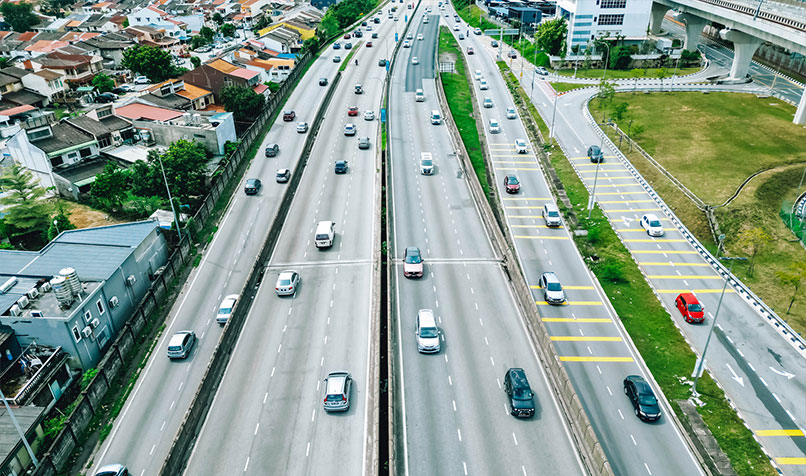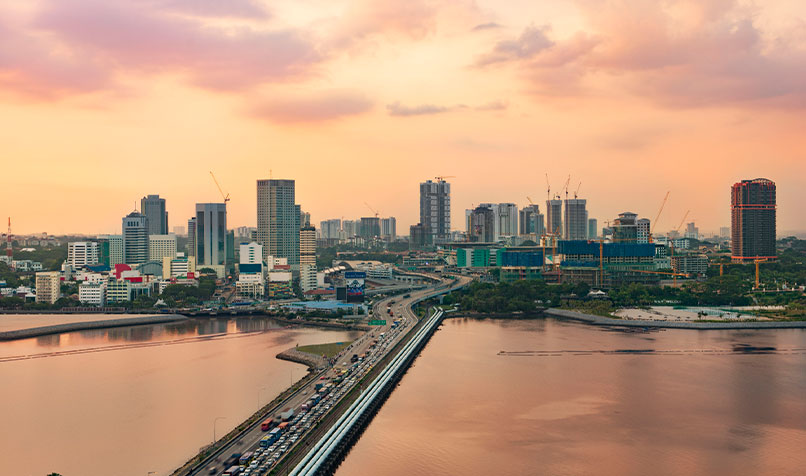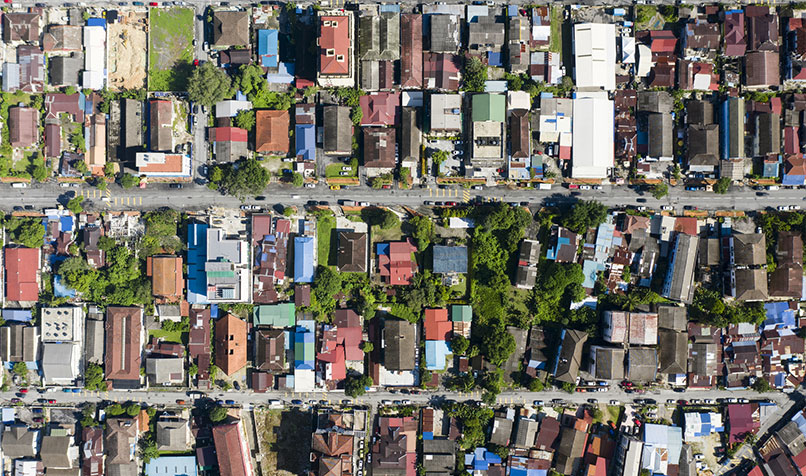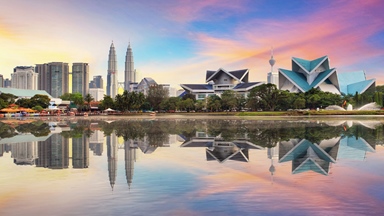Loading component...
At a glance
By Melody Tan
In a budget titled “Membangun Malaysia MADANI” – which translates to “Developing Civil Malaysia” – Prime Minister and Finance Minister Anwar Ibrahim outlined the three priorities [PDF] of his “Unity Government”: tackling the rising cost of living, driving economic growth and addressing fiscal debt.
Anwar’s 388.1 billion ringgit budget allocated 289.1 billion ringgit to operating expenditure and 99 billion ringgit to development expenditure, the latter of which includes 2 billion ringgit for contingencies.
Buoyed by better-than-expected economic 8.7 per cent growth in 2022, this year’s budget has increased from the previous 372.3 billion ringgit budget tabled in October by former Prime Minister Ismail Sabri Yaakob. That budget did not pass parliament because of a snap general election.
While Malaysia’s fiscal deficit for this financial year is expected to decrease from 5.6 to 5 per cent of gross domestic product (GDP), the government’s debt stood at 1.08 trillion or 60.4 per cent of GDP in 2022.
Stating that his government aimed to lower the fiscal deficit to 3.2 per cent by 2025, he added: “This administration is committed to the principle of accountability: to control fiscal positions including addressing debt issues, while at the same time continuing to support inclusive and sustainable economic growth.”
Developing infrastructure and people

In line with the budget’s guiding principles of economic stimulation, social justice and institutional and governance reforms, development, health and education all received increases.
Development allocation increased to 97 billion ringgit, compared to 71.6 billion in 2022. The increase will focus on poverty eradication programs and the restoration of public infrastructure and rural facilities.
These include greater disaster management preparedness, retendering of flood mitigation projects, road maintenance and upgrading and construction.
It also includes the implementation of the Inisiatif Pendapatan Rakyat (People’s Income Initiative), which will receive 750 million ringgit to improve the earning potential of citizens on lower incomes.
To encourage micro-entrepreneurship among lower-income and disadvantaged groups, Anwar announced the creation of a 1.7 billion ringgit loan facility from Bank Simpanan Nasional, Bank Negara Malaysia (BNM) and the National Entrepreneurial Group Economic Fund (Tekun).
Of this, 235 million ringgit has been earmarked for the Micro-credit Financing for Women initiative to further help women entreprenuers.
Improving revenue sustainability
Boosting transparency, limiting wastage and fighting corruption were key aims of the Prime Minister’s budget agenda.
The creation of the Procurement Act, Fiscal Responsibility Act, and Consumer Credit Act, as well as amendments to the Whistleblowers Protection Act, were among measures intended to strengthen government oversight and address institutional weaknesses.
The 2024 year of assessment will see the availability of electronic tax filing and payment, the introduction of the minimum effective tax rate at the global level in line with Pillar Two of BEPS 2.0, and the implementation of the Qualified Domestic Minimum Top-Up Tax.
Measures to help SMEs create more value
The tax rate on chargeable income for the first 100,000 ringgit will be reduced from 17 to 15 per cent for micro and small-to-medium enterprises (SMEs).
These firms will also each receive one-off grants of 1000 ringgit – totalling 1 billion ringgit – and a full exemption on stamp duties for restructuring agreements, loan rescheduling or financing until 2024.
The SemarakNiaga 2023 program for SMEs and micro enterprises will provide up to 45 billion ringgit in direct loans, alternative financing and financing guarantees.
Further, up to 20 billion ringgit of SME loans will be guaranteed by the Syarikat Jaminan Pembiayaan Perniagaan (SJPP) – being the Ministry of Finance’s scheme to provide SMEs with access to financing facilities.
SMEs in agriculture, manufacturing, and pioneering technology will also be eligible to seek a government guarantee on loans of up to 90 per cent from the Syarikat Jaminan Pembiayaan Perniagaan (SJPP). Guarantees will also be expanded to financing by non-bank financial institutions such as credit leasing companies and cooperatives to specifically benefit small business.
Anwar also announced the restructuring of investment incentives towards tiered, outcome-based taxes to drive the creation of new industry clusters and high-value jobs, and the inclusion of local companies in supply chains.
Local start-ups in innovative and high-growth industries may be eligible to receive investments from Malaysia’s sovereign wealth fund, Khazanah Nasional, and the Employees’ Provident Fund, with 1.5 billion ringgit set aside for such investments.
In addition, 100 million ringgit has been set aside under the Digitisation Grant Scheme for SMEs, along with a 1 billion ringgit financing facility administered by Bank Negara Malaysia (BNM) intended to drive the automation and digitisation of operations among SMEs.
The government will further provide matching grants from a 50 million ringgit fund to encourage the use of robotics and artificial intelligence in plantations.
The tax deduction (capped at 1.5 million ringgit) on listing costs for firms listing on Bursa Malaysia’s ACE and LEAP Market will be extended until 2025. The same deduction will be expanded to tech companies listing on the Bursa Malaysia Main Market.
To further encourage digitisation, the 5G network will expand to cover 70 per cent of highly populated areas under the Digital Nasional Berhad scheme.
Attracting investment to Malaysia

To enhance Malaysia’s attractiveness to international investors and talent, Anwar said the Iskandar Malaysia development corridor in Johor would see the creation of a special financial zone, along with competitive remuneration packages.
A 1 billion ringgit investment fund for high value-added investment was announced, in addition to a 364 million ringgit allocation for research and development activities in areas like nanotechnology, renewable energy, and digital innovation.
The budget also included tax breaks for high-value sectors. An intellectual property development tax incentive will be extended to 31 December 2025, as will current income tax incentives for the pharmaceutical sector.
The aerospace and electrical and electronics sectors will see extended tax incentives given to manufacturing companies shifting operations to Malaysia, and a 15 per cent tax rate for C-suite executives until 2024.
In particular, the aerospace sector will receive extended income tax incentives and investment tax allowances until 2025 in a bid to attract investment and encourage expansion.
Other taxation changes include the expansion of tax incentives for equity crowdfunding to include investments made by individuals through a limited liability partnership nominee company until 31 December 2026.
Funding for green initiatives
The green economy received a boost with a special focus on the electric vehicle (EV) industry.
Besides providing tax breaks to companies leasing EVs, Anwar announced a 100 per cent statutory income tax exemption for EV charger manufacturers from this year until 2032, in addition to a 100 per cent allowance on investment tax for the next five years.
The waiver on sales tax and excise duty on EVs completely assembled locally has been extended to 31 December 2027, as has the exemption on import duties for EV components intended for local assembly.
The scope of the Green Technology Financing Scheme will be broadened to include EVs with a maximum guarantee limit of 60 per cent, while the scheme itself will receive an increased 3 billion ringgit allocation until 2025.
To promote sustainability and automation, Bank Pembangunan Malaysia (Malaysia Development Bank) is providing 6 billion ringgit in strategic financing.
Khazanah Nasional Berhad will allocate 150 million ringgit to green projects such as reforestation and initiatives to support the carbon market. Meanwhile BNM will provide up to 2 billion ringgit in financing to support start-ups working in green technologies, as well as SMEs embarking on low-carbon practices.
Extensions to the Green Investment Tax Allowance and Green Income Tax Exemption will be implemented for applications received between 1 January 2024 to 31 December 2025.
In the interim, the government will conduct a feasibility study on carbon price mechanisms, including a carbon tax.
Taxes on higher-income earners

The budget proposes to introduce a luxury tax beginning this year on some items such as high-end watches and fashion goods, and new excise duties on the liquid nicotine in vapes and e-cigarette products.
CPA Australia notes that a luxury tax may encourage people to buy such products in other markets.
Addressing the possibility of reintroducing a Goods and Services Tax (GST), Anwar said high inflation and low wage rates meant the proposal was currently unfeasible. Instead, the government will consider a capital gains tax on unlisted share disposal by companies beginning in 2024.
CPA Australia notes from its experience of capital gains tax in Australia that such a proposed tax may be complicated and not raise significant amounts in additional revenue.
In addition, while the government will provide a 100 per cent waiver on additional taxes for taxpayers who self-declare unreported taxes as part of a special voluntary disclosure program from 1 June this year to 31 May 2024, it will also impose more progressive taxation.
“As income and wealth are concentrated among the upper classes and wealthy elite, it is appropriate that redistribution is focused on the poor and middle class,” Anwar said.
Those earning between 100,000 ringgit to 1 million ringgit annually will see their income tax raised between 0.5 to two percentage points, while those bringing home 35,000 ringgit to 100,000 ringgit per year will have their tax reduced by 2 per cent.
It’s an initiative expected to provide an estimated 2.4 million taxpayers with an additional disposable income of 1300 ringgit.
First-time homeowners will enjoy full exemption from stamp duty until the end of 2025 for properties valued below 500,000 ringgit. Properties transacted between 500,001 ringgit to 1 million ringgit will receive a 75 per cent stamp duty exemption until 31 December this year.
“This administration is taking an expansionary approach for the 2023 budget to support economic growth so that its benefits can be enjoyed by all citizens,” Anwar said.
Reactions to Malaysia budget 2023-2024
Surin Segar FCPA, President CPA Australia Malaysia Division
“The Malaysian Budget 2023 by the Unity Government is aimed at the wellbeing of the rakyat [public] in the B40 [bottom 40] and M40 [middle 40] category. Putting more money in the hands of the rakyat is top of the agenda, especially to ease cost of living pressures.
“The government is cognisant of the issues on the ground and wishes to improve living standards and raise social protection against any further economic headwinds.
“Prime Minister Anwar Ibrahim is also concerned about our sustainability targets and has provided incentives to support green technology.
“Balancing personal tax rate adjustments between high- and low-income taxpayers is progressive in the current economic scenario.
Alan Chung FCPA, Chairman CPA Australia Malaysia Tax Committee and Senior Executive Director, Grant Thornton
“While there is a need to broaden the scope of indirect taxes to enhance revenue collection, we understand the government’s decision to defer the reintroduction of GST given the current economic circumstances.
“In terms of revenue enhancement, the proposed voluntary disclosure should be implemented in a permanent form – especially for indirect taxes – to give more certainty to businesses.
“Nonetheless, the penalty reduction for permanent voluntary disclosure should be lesser than the proposed 100 per cent to differentiate good and diligent taxpayers.
“On the proposed tax on vape products and luxury goods, it is expected to hit only a minority of the population.”
Jagdev Singh FCPA, Member of CPA Australia Malaysia Tax Committee and Tax Leader, PwC Malaysia
“The re-tabled Budget 2023 takes a very structured approach to address the challenges the nation is expected to face given continuing global economic uncertainty.
“This is a shift from previous budgets and adopts an approach that is more strategic and reformist in dealing with issues faced by the nation.
“Considering Malaysia’s commitment to achieving net zero emissions by 2050, it would have been good to see more comprehensive measures towards this end, including potentially introducing a carbon tax.
“As the ESG agenda becomes more prominent among Malaysian corporates, with some even implementing internal carbon pricing policy, it would have been impactful to incentivise companies to adopt strategies to manage climate-related business risks and transition to a low-carbon economy.”

